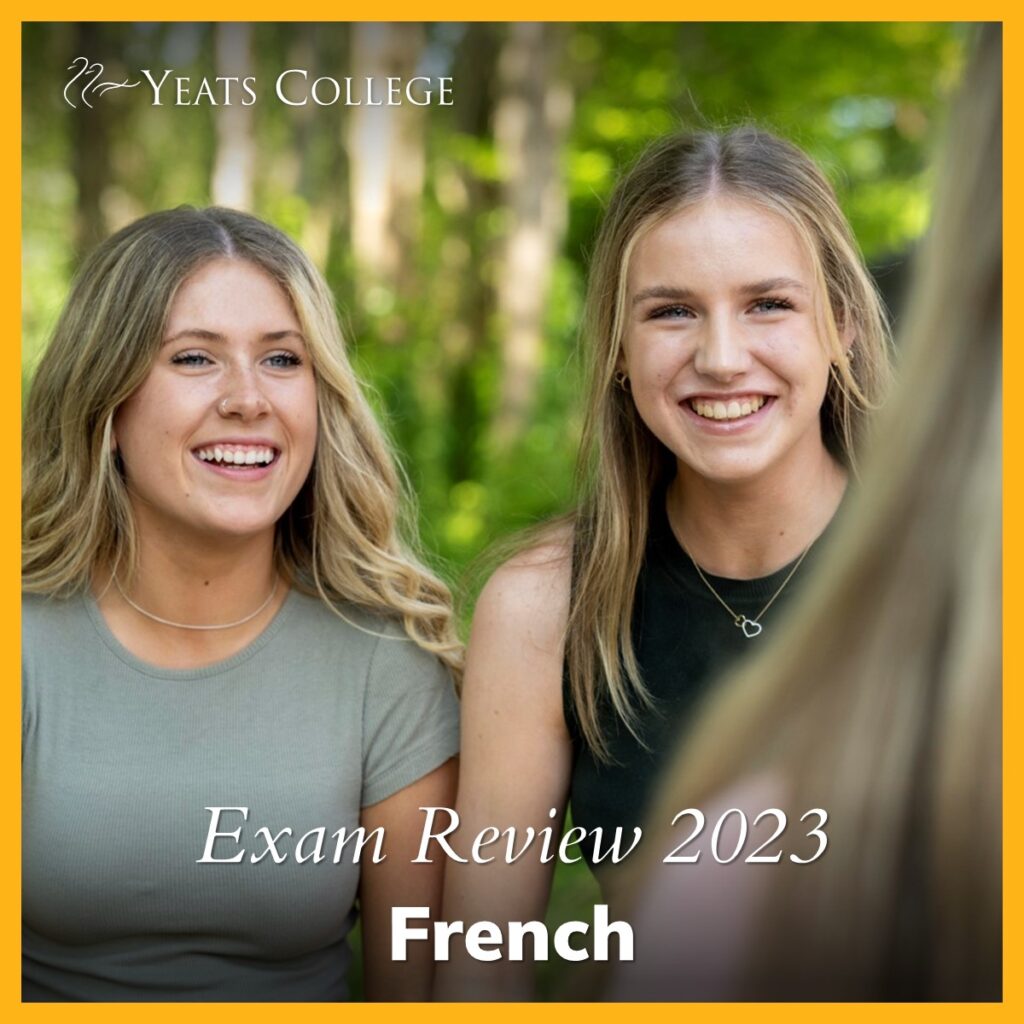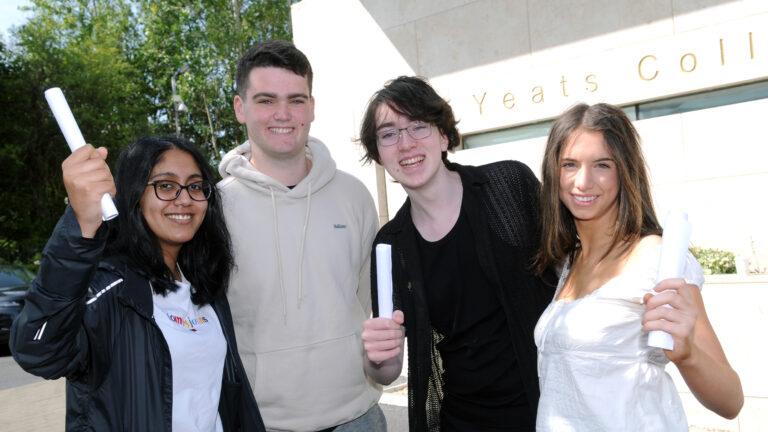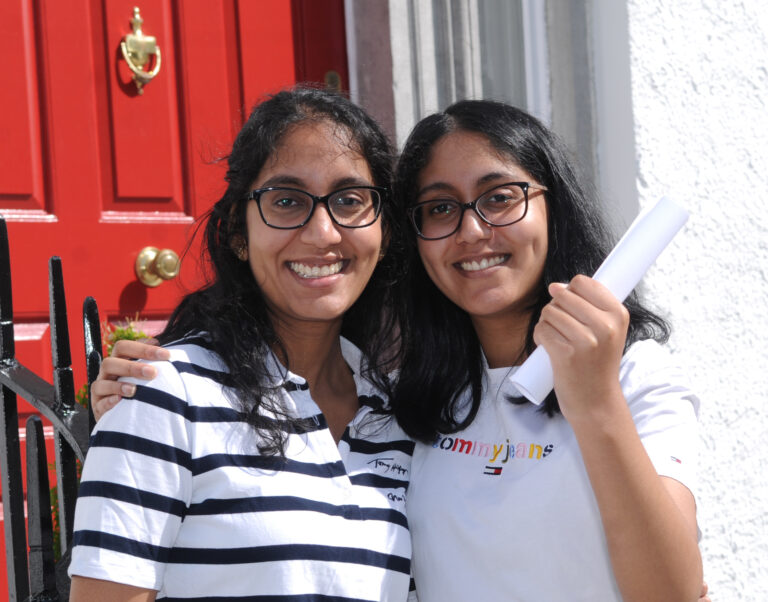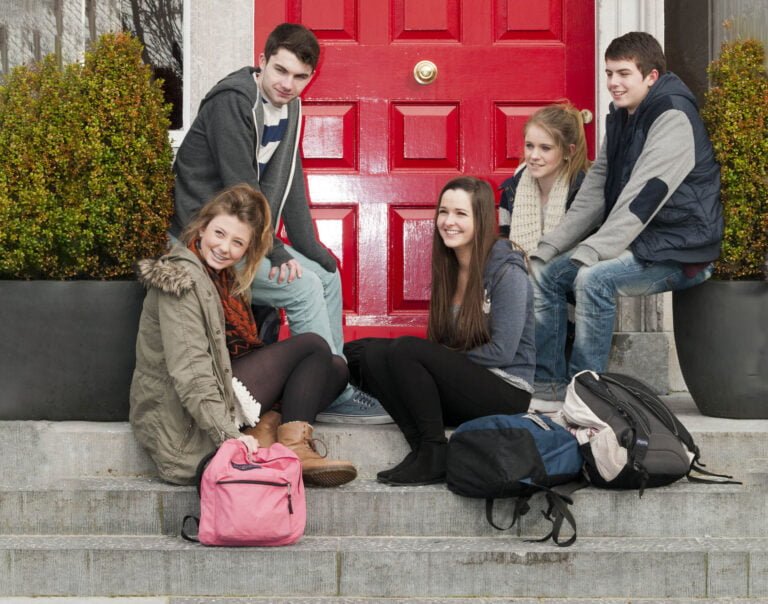By Sarah Clancy
Both the Leaving Certificate Higher Level French written and aural paper were very pleasant, and students were able to choose from a nice selection of topics, including holidays, friendship, social media, online education and going to university. Students were allotted 2 ½ hours to complete the written paper (excluding the aural paper). Overall, both the written and aural papers were very fair and should not have posed any major problems/surprises to students.
Students were required to answer both the journalistic and literary reading comprehensions in Section A. In Section B, students were required to respond to two questions in total: Question One – obligatory (choice of three topics) / One more question from a selection of five other themes/topics.
Section A
Reading Comprehension Q.1 Journalistique
The journalistic reading comprehension was a very doable and fair comprehension entitled “C’est bon les congés à la maison” (Vacation/Holidays at home is nice). The vocabulary and expression used should have been very familiar to students. The text was adapted from the magazine Aujourd’hui en France, which tackles topics such as economy, politics, sports and culture. The extract used in the examination explored the diverse experiences of individuals who chose to embrace the comforts of home during the holidays instead of embarking on travels.
Perhaps some less familiar nouns/verbs/expressions that appeared in the text include:
tricoter = to knit
alléger = to relieve/to ease
auparavant = before/formerly (synonym of ‘avant’)
le carburant = fuel
ressourçant (ressourcer) = re-energising/revitalising
un potager = a vegetable garden
bouquiner = to read/have your head in a book
longer = to drive/go along the length of
les imprévus = unforeseen events/mishaps
The grammar, synonym, and multiple-choice questions were all very straight forward (although the second synonym question required a strong understanding of expression) and little manipulation was required for the open questions; however, precision was still key (not to give too little or too much information):
2 (a) Citez la phrase qui veut dire « il y a plusieurs avantages ». = « Les bénéfices sont nombreux ».
2 (b) Relevez dans la deuxième section un adjectif possessif. = notre / nos / leurs
3 (b) Selon la troisième section, Sébastien : est conscient des frais (costs/fees) de vacances.
4 (b) Citez l’expression qui veut dire « d’une autre façon ». (= differently / in a different manner) = avec un œil neuf (literally = with a new eye / figuratively = with a fresh/new perspective)
Reading Comprehension Q.2 Littéraire
The literary comprehension was adapted from a contemporary mystery novel, entitled Trois (Three) (2021), by Valérie Perrin. The story follows Nina, who lives with her grandfather, a postman. Nina steals letters and postcards from her grandfather’s postal sack to discover other people’s lives. Naturally, students found this comprehension slightly more challenging. More manipulation was required to respond to certain questions and longer sentences necessitated a strong understanding in order to select the specific text to answer the question asked. As the more familiar verb ‘voler’ (to steal) was not used in the text, students may have found it more challenging to respond to Q.6, which asked them to explain why Nina was a complex character. This verb choice highlights the importance of building up a list of synonyms during the school year. It is possible that a few other nouns/verbs/expressions may not have been as familiar to students such as:
- piquer (slang) / dérober (formal) = voler (to steal)
- se répandre = to spread out
- décacheter = to unseal (ouvrir une lettre)
- éparpillé = scattered (dispersé)
- accroché = to hang up (photos/posters)
- enjamber = to step over
- vider = to empty
The grammar question was very straightforward; however, the multiple-choice question may have required a handful of readings to work out the correct answer.
2 (a) Selon la première section, le grand-père de Nina : rend des lettres à la poste après la sieste (‘rend’ from the verb ‘rendre’ = to return/to give back)
4 (b) Trouvez dans la troisième section un verbe au futur simple : -> Sera / connaîtra / faudra
Section B
As noted previously, the selection of topics in Section B was very pleasant but still required planning in order to answer them to a high standard.
For the obligatory Question One, students were able to choose from questions on:
(a) ‘what do you prefer – staying at home or going on holidays” – which linked back to the first reading comprehension.
(b) ‘what is the important of friendship in the lives of young people’ – which linked back to the second reading comprehension.
(c) ‘last week you did something that angered a person who you know well. Describe what happened and the consequences of your actions’ – which linked back to the second reading comprehension and could be either a real or imaginary story.
For the final written question, students were then able to choose from a selection of topics on:
Q. 2 A diary entry on whether or not you want to attend your debs’ ball next October.
Q. 3 Social media has a very strong impact on young people. Do you agree?
Q. 4 An email responding to your friend asking for details about attending Electric Picnic.
Q. 5 (An image) How to survive going to university? (finding accommodation, eating a balanced diet, and hoping for the best). Give your reaction.
Q. 6 School online – A success or failure? What do you think of online school?
Overall, there was a nice choice of questions for students to choose from in Section B. The themes and topics covered should have been very familiar to students and, in some cases, would have been also unpacked when preparing for the oral examination. The questions were very clear and concise, and the vocabulary and expression used should not have posed any problems to students. While there was a great selection of questions, it was perhaps surprising that a current event did not come up in some shape or form, such as the war in Ukraine / striking / EU membership / environment etc. That said, it was still a very pleasant and manageable paper.
Aural Examination
The Leaving Certificate Higher Level French aural paper was made up of five short listening exercises. Students were allotted 40 minutes to complete the listening component of the exam and all answers and questions were in English. Overall, the aural exam was very fair. The audio and accents were extremely clear, and the majority of topics covered should have been very familiar to students. The content of the listening paper highlighted the importance of revising key vocabulary, including jobs, transport, numbers, seasons, days, and months as well as awareness of more topical issues that may have been covered in preparation for the opinion pieces (e.g., inflation).
Exercise 1. Grégoire, Eléonore and Baptiste talk about living in Paris. Overall, this was a very nice opening exercise to the aural paper that should have settled students in nicely. The accents of the different speakers were very clear, and the vocabulary was straightforward and familiar (le loyer, trop de grèves, trop de manifestations, et trop de circulation).
Some vocabulary that students may not have been familiar with:
- Un lieu branché = A trendy area
- Un atelier = A workshop
- Abordable = Affordable
Exercise 2. Comedian Panayotis Pascot talks about his career which started on the TV show Quotidien. Once again, this interview was very fair. The speed of conversation was nicely paced, sentence structure was not overly complicated and although students may have not grasped some small expressions (e.g., Manque de sommeil = lack of sleep), it should not have impacted on overall ability to answer the questions posed which required more familiar vocabulary (e.g., faire mes devoirs / j’ai gagné de petits prix). It was also nice that this interview was based on a contemporary French comedian – anyone who may have watched his comedy show on Netflix, Presque (Almost), to practice French listening on the lead up to the exam may have had an upper hand as many of the questions asked were explored in his show!
Exercise 3. A conversation between two friends, Carole and Jacques. The audio and accents were very clear in this clip. Some varied vocabulary came up in this section as Carole and Jacques were trying to decide on a new roommate. Vocabulary included adjectives (fiable, honnête), nationalites (allemand), jobs (e.g., entraîneur de judo), household activities (e.g., les tâches ménagères), hobbies (e.g., écouter de la musique).
Exercise 4. Catherine and Hugo speak about how they are dealing with inflation. This exercise was once again very doable. Some very familiar vocabulary/expression was used (e.g., nourriture, viande). It is possible that Question (2)b. could have been a little tricky for some students: “What has the government done?”. The answer is that the government has increased the back-to-school allowance (l’ allocation de rentrée scolaire). Similarly, students may have thought that one of the possible answers to Question 4. was tricky to understand: “How does Hugo take advantage of the extended daylight in the summer? Possible answers include: he leaves the shutters (les volets) wide open / he does not turn on the lamps / he can read
Exercise 5. News Items. The news items were very straightforward and clear but still required a good knowledge of the vocabulary that appears in this section such as weather, accidents, and numbers!
Q.1 (It was the hottest ever recorded in Europe) Le plus chaud jamais enregistré en Europe
Q. 2 (had to spend the night alone) en solitaire / (had to spend the night at more than 2300 metres altitude) à plus de 2300 mètres d’altitude / (Without a sleeping bag) Sans sac de couchage
Q. 3 (Contactless/Contactless payment) Sans contact
Overall, students were very happy with both the written and aural paper.
Well done to all and Bonne Continuation, Sarah.






